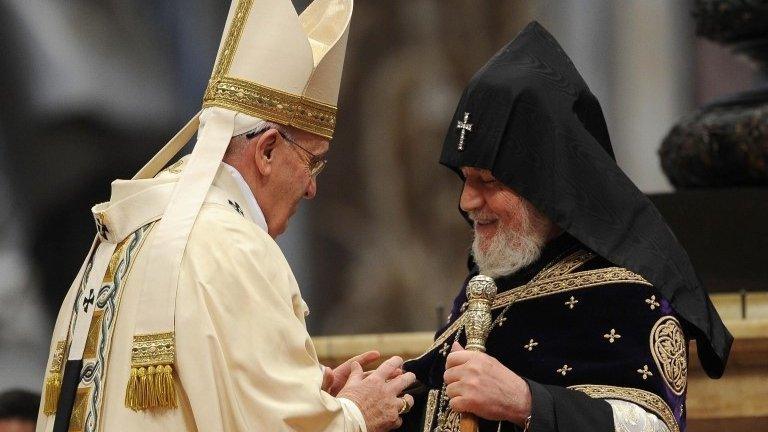German MPs recognise Armenian 'genocide' amid Turkish fury
- Published
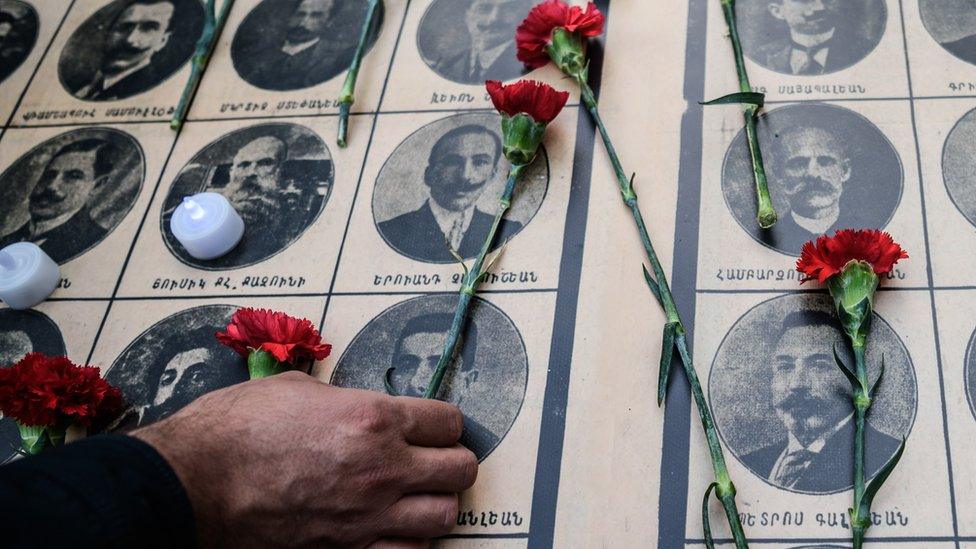
Persecuted Armenian intellectuals were remembered at a ceremony in Istanbul in April
The German parliament has approved a resolution declaring that the mass killing of Armenians by Ottoman Turks during World War One was a "genocide".
Armenians say up to 1.5 million of their people died in the atrocities of 1915. Turkey says the toll was much lower and rejects the term "genocide".
The vote heightened German-Turkish tensions at a time when Turkey's help is needed to stem the flow of migrants.
Turkey has recalled its ambassador and its leader threatened further action.
President Recep Tayyip Erdogan said the recall was a first step and that the government would consider further action it might take in response to the vote.
"We will do whatever is necessary to resolve this issue," he said.
In the latest response:
Turkey's Prime Minister Binali Yildirim blamed a "racist Armenian lobby" for the resolution
Armenia's Foreign Minister Edward Nalbandian said it was a "valuable contribution" to the "international recognition and condemnation of the Armenian genocide"
German Chancellor Angela Merkel said: "There is a lot that binds Germany to Turkey and even if we have a difference of opinion on an individual matter, the breadth of our links, our friendship, our strategic ties, is great"
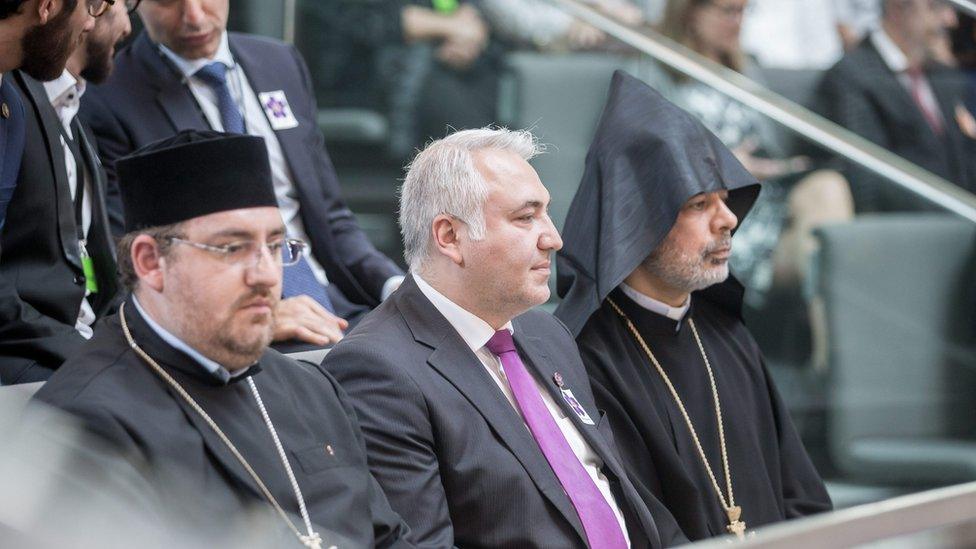
Some Armenian community leaders in Germany attended the Bundestag debate
More than 20 nations, including France and Russia, as well as Pope Francis, have recognised the 1915 killings as genocide.
Turkey denies that there was a systematic campaign to slaughter Armenians as an ethnic group during World War One. It also points out that many Turkish civilians died in the turmoil during the collapse of the Ottoman Empire.
Mrs Merkel was not in the Bundestag (lower house) for the vote. Her Christian Democrats (CDU), their coalition partners the Social Democrats (SPD) and the Greens all supported the resolution, and the vote in favour was overwhelming.
German MPs came under pressure from Turks in the run-up to the vote, receiving threatening and abusive e-mails, German ARD news reports.
The resolution uses the word "genocide" in the headline and text. It also says Germany - at the time an ally of the Ottomans - bears some guilt for doing nothing to stop the killings.

Question of German guilt - BBC's Damien McGuinness in Berlin
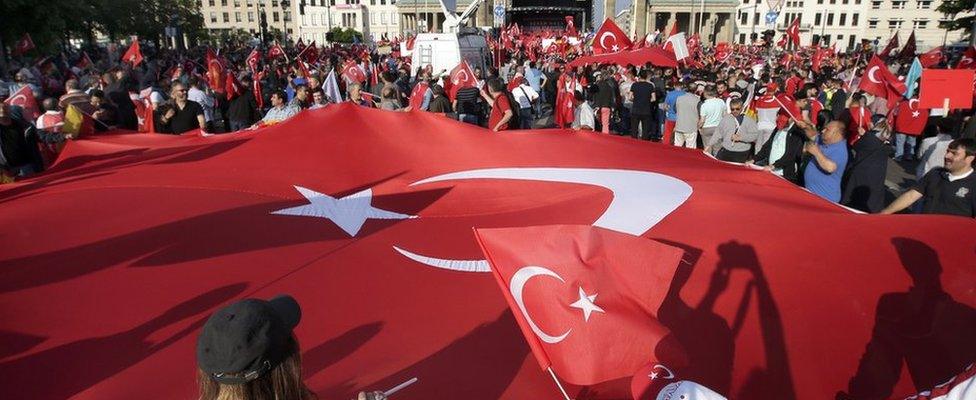
Pro-Turkish protesters demonstrated against the resolution in Berlin on Wednesday
The reactions from Ankara are every bit as strong as feared. Turkey's foreign minister even accused Berlin of trying to deflect from the dark episodes of its own history, a clear reference to Germany's Nazi past.
But for many German politicians this vote was about exactly the opposite: it was about dealing with not just Turkey's difficult 20th century history, but also Germany's.
Many of the speeches in parliament focused on German responsibility in the 1915 killings. At the time, the German empire was a military ally of the Ottomans, and is accused of knowing about the massacres and not doing anything to prevent them. So for many Germans this resolution is about facing up to German historical guilt - something modern Germany is founded upon.
But the big question is what this all means for Europe's attempts to solve the migrant crisis. Diplomatic relations may be strained. But the hope in Berlin is that tensions don't scupper the EU's new refugee deal with Turkey.

Under a deal struck in March, Turkey agreed to take back migrants - including Syrians - arriving on Greek islands, in return for EU aid and a pledge to give Turks visa-free travel to most of Europe.
Germany accepted 1.1 million migrants last year - by far the highest influx in the EU.
German-Turkish relations were also strained this year by the case of comedian Jan Boehmermann, whose obscene poem about Mr Erdogan prompted a criminal complaint from the Turkish leader.
Last month a court in Hamburg ruled that Boehmermann's poem was satire, but banned him from repeating the sexual references in it, deeming them unacceptable.
Germany plans to repeal a clause in the constitution prohibiting insults that target foreign leaders - the clause invoked by Turkey in the complaint.

Armenian genocide dispute
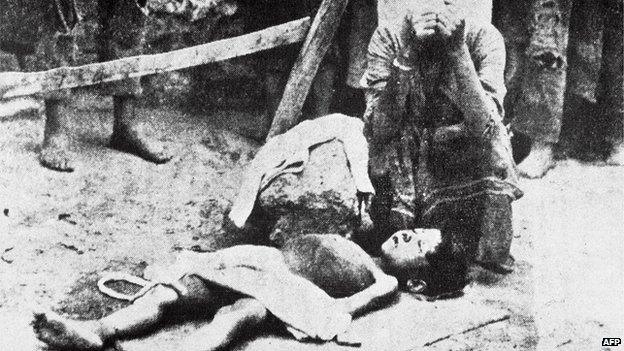
Arguments have raged for decades about the Armenian deaths in 1915-16
Hundreds of thousands of Christian Armenians died in 1915 at the hands of the Ottoman Turks, whose empire was disintegrating
Many of the victims were civilians deported to barren desert regions where they died of starvation and thirst. Thousands also died in massacres
Armenia says up to 1.5 million people were killed. Turkey says the number of deaths was much smaller
Most non-Turkish scholars of the events regard them as genocide - as do more than 20 states including France, Germany and Russia, and some international bodies such as the European Parliament
Turkey rejects the term "genocide", maintaining that many of the dead were killed in clashes during World War One, and that many ethnic Turks also suffered in the conflict

- Published24 April 2021
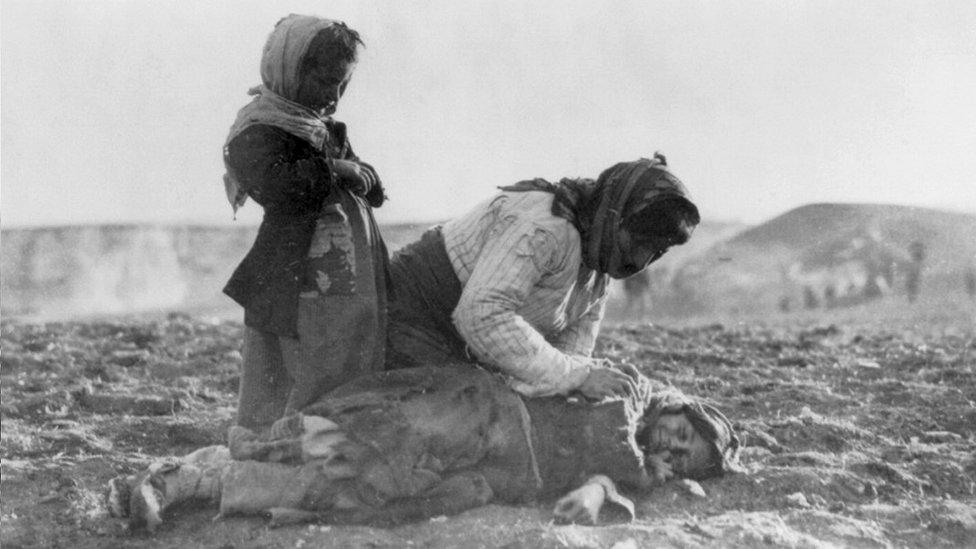
- Published17 May 2016

- Published23 April 2015
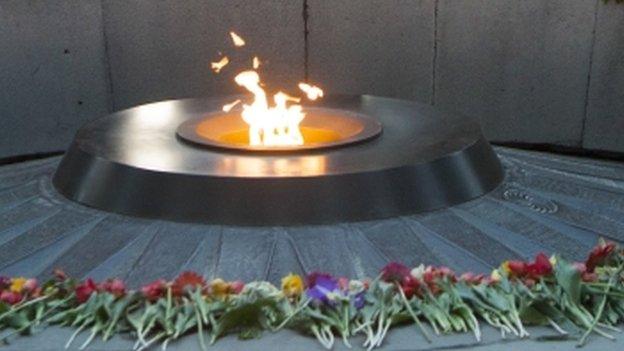
- Published12 April 2015
